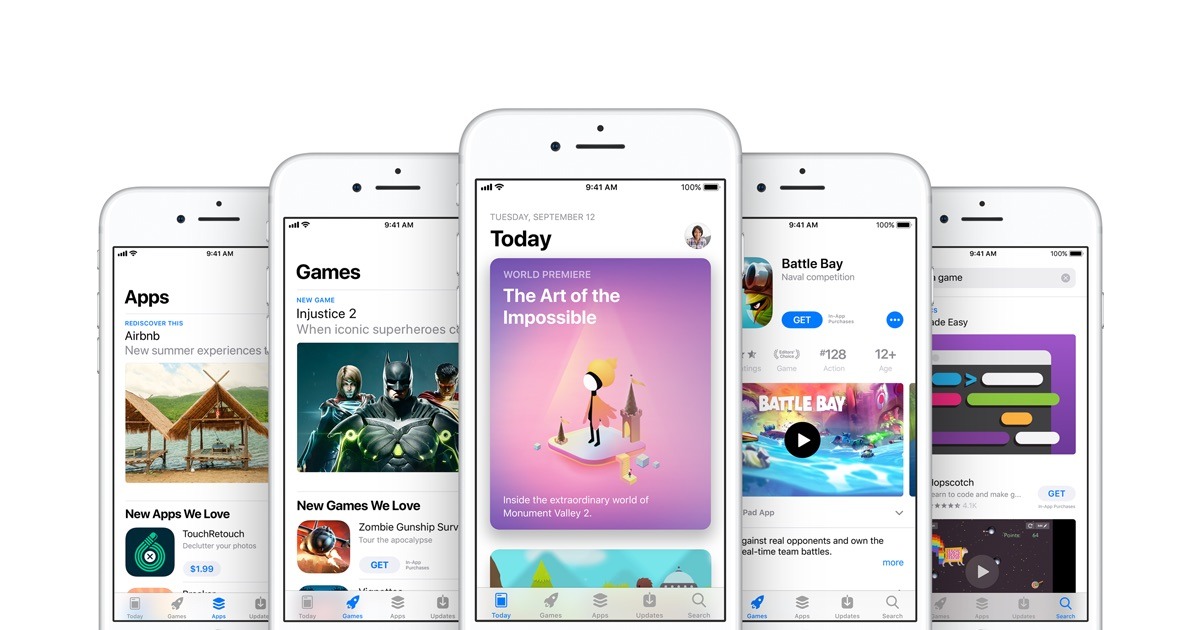Amid antitrust scrutiny of the App Store, Apple's Phil Schiller says that the digital marketplace leveled the playing field for developers when it launched.
Apple is currently facing both questions and backlash about its App Store policies, particularly the 15% to 30% cut it takes of in-app purchases. And on Wednesday, CEO Tim Cook is set to testify about its App Store and other practices in a U.S. House antitrust hearing.
On Tuesday, Apple Senior Vice President of Worldwide Marketing Phil Schiller offered a different take about the App Store. Specifically, he said that when the marketplace launched, it actually fostered competition.
"One of the things we came up with is, we're going to treat all apps in the App Store the same - one set of rules for everybody, no special deals, no special terms, no special code, everything applies to all developers the same," Schiller told Reuters.
Schiller added that when the App Store launched in 2008 with 500 apps, that wasn't the case in PC software. "Nobody thought like that. It was a complete flip around of how the whole system was going to work," he said.
At the time, software sold through physical retail channels had to pay for shelf space at stores. That could cost up to 50% of the retail price. Even digital marketplaces like App Store predecessor Handango charged developers up to a 40% commission, potentially blocking out small developers.
"Apple took that to a whole other level. And at 30%, they were a better value," said Ben Bajarin, head of consumer technology at Creative Strategies.
Of course, apps submitted to the marketplace must adhere by Apple's guidelines, which include a clause that requires the use of Apple's own payment system for most apps. Those guidelines were originally a private list, but were published in 2010.
Schiller added that the cut that Apple takes is used to maintain the marketplace, including paying for secure servers to deliver apps and systems to vet and test them. In a previous interview, the Apple SVP said that Apple's sometimes strict guidelines are meant to ensure consistency and an overall good experience for users.
Now that Apple's digital marketplace is part of a duopoly with Google, Dogtown Studios CEO Marc Fischer said the fees should be lower. He offered the idea of the single-digit cut that payment processors.
The company 15% to 30% commission has faced backlash over the years, including most recently by Basecamp-created email app Hey. The chairman of the House subcommittee set to interview Tim Cook also equated Apple's cut to "highway robbery" in a June interview.
 Mike Peterson
Mike Peterson







-m.jpg)






 Andrew Orr
Andrew Orr
 Amber Neely
Amber Neely
 Marko Zivkovic
Marko Zivkovic
 William Gallagher and Mike Wuerthele
William Gallagher and Mike Wuerthele



 Mike Wuerthele
Mike Wuerthele









28 Comments
70% of the retail price is a better deal than 25% of the cost to manufacture (which is what a lot of product sellers at WalMart have to accept).
He is comparing competition on PC to competition on mobile devices. First off those are two totally different things with nothing to do with each other, akin to comparing competition in burger chains with competition in blue jeans. Second, it is not an argument that helps him as much as he insists on thinking. Not long ago I installed BlueStacks with its Google Play Store on my Mac Mini because I wanted to use an Android app that isn't available on macOS. Also installed Steam which allows me to buy and install games that are available on macOS (because I wanted those purchases to be available on Steam clients that run on all the platforms that I have machines for where buying the game on the App Store would have only made them available on Macs). You can't do that on iOS, iPadOS, tvOS and watchOS devices ... the App Store is all there is.
As I have stated earlier, I want Apple to win this fight, but to do so they need to stop relying on ad campaigns that only make sense to Apple's loyal customers and defenders in the press and start coming up with strategies and legal arguments design to win over people who are used to platforms that give them more choice on the hardware that they buy and own. This not only includes macOS but even iPods. I would buy MP3s from Amazon, Microsoft or wherever, import them into iTunes and sync them to my iPod all the time. This included songs and podcasts that weren't available on the app store and from suppliers who were offering tracks for 79 cents instead of 99 cents for whatever reason.
Also, Schiller is right. The pre-App Store software world was a huge mess. The default was still purchasing software on physical media in boxes with instruction books. Those instruction books were a necessity, because there was very little consistency with user interfaces. Online software sales was a thing, but you mostly dealt directly with developers. There were online "stores" out there, but they were pretty much weblink clearinghouses that came with no assurances as to quality or safety of the content you were buying. The idea of downloading free or inexpensive apps that were immediately intuitive to use and that had an almost zero chance of crashing (or infecting) your device arrived with Apple's iOS App Store. For developers, direct access to a device's user base without developing and managing an e-commerce system was also a boon. High volume sales of low-priced apps at low margins can actually make a lot more money than selling at lower volume with a high markup to try to recapture the up front costs of managing e-commerce directly.
People quickly forget what things were like before Apple re-imagines an entire concept.